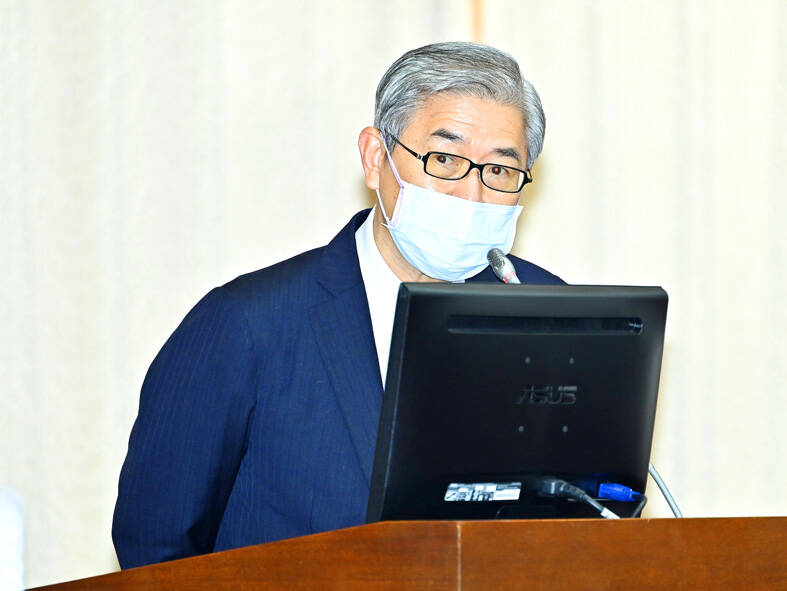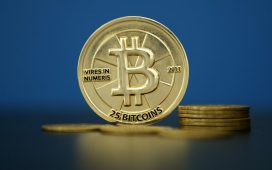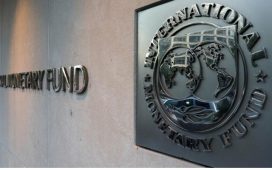FTX FALLOUT:
The commission would work with industry, its chairman said, as it moves from a hands-off approach to ramping up oversight amid a turbulent year
Taiwan is set to name its top financial regulator as the main authority overseeing cryptocurrencies as it steps up control over the industry following market turmoil triggered by the collapse of the FTX crypto empire.
The announcement of the Financial Supervisory Commission (FSC) as the chief regulator of cryptocurrency exchanges and virtual assets could come by the end of this month, a person familiar with the matter said.
The Cabinet and the FSC have been working with other government departments and talking to industry representatives to draft a concrete plan, other people familiar with the discussions said.

Photo: Tu Chien-jung, Taipei Times
The move would be the first time that Taiwan has officially appointed a regulator for the cryptocurrency industry, and a shift from its relatively hands-off approach as authorities ramp up oversight amid a turbulent year.
By contrast, its regional peers have taken a more active stance — Singapore has proposed tighter rules on retail crypto trading, while Hong Kong is powering ahead with enacting more industry-friendly rules to turn the city into a crypto hub.
The commission is to follow the Cabinet’s instructions on the next steps, including the timing of any announcement, FSC Chairman Thomas Huang (黃天牧) told reporters yesterday at the legislature.
After the main crypto regulator and overall guidelines for regulations are announced, the commission would likely work with industry participants on “self-regulation measures,” Huang said.
The commission is to focus on regulating payment and trading-related virtual assets, and the Cabinet plans to assign the rest to other government departments, Huang said.
Non-fungible tokens (NFTs) would not be under its supervision, he added.
He also said “it’s way too early” to discuss forming a separate legislation for virtual assets.
The commission only requires crypto platforms registered domestically to comply with its anti-money laundering requirements. There is not yet any legislation that directly applies to virtual assets.
In response to the upcoming changes, cryptocurrency exchanges are trying to rally support from local companies for less onerous regulation.
A joint paper sent from Binance Holdings Ltd, Matrixport Technologies Ltd and Woo Network LLC on Saturday called for more friendly regulation that provides “clarity” for players operating in Taiwan.
The companies hope to garner more local support before delivering the paper to officials, people familiar with the matter said.
“From our observations, some markets that tried to regulate virtual assets under existing financial rules and categorizations experienced great difficulty, as the rules lacked clarity and made it very confusing for business operators, authorities and customers,” the paper said.
Taiwan should reference regulatory frameworks in the EU and Dubai, where authorities set up independent and designated departments for virtual assets separate to traditional finance, it said.
Tougher regulation could lead to financial losses for customers who are already participating in global market trading, and force crypto trading activities to go “underground,” hurting industry growth and regulatory progress, the paper added.
The commission’s Banking Bureau, which regulates traditional lenders, has been driving the changes and has held talks with crypto exchange operators, people familiar with the matter said.
Exchanges that provide virtual asset trading services are to be the first within the industry to be regulated under the commission, they said.
Other FSC bureaus could still be involved in the final regulatory decision given the complexity of virtual assets, they added.
For example, virtual assets with the characteristics of marketable securities could be regulated by the Securities and Futures Bureau, NFT regulation could involve the Ministry of Digital Affairs, and stablecoins associated with fiat money could involve the central bank, they said.
Comments will be moderated. Keep comments relevant to the article. Remarks containing abusive and obscene language, personal attacks of any kind or promotion will be removed and the user banned. Final decision will be at the discretion of the Taipei Times.











